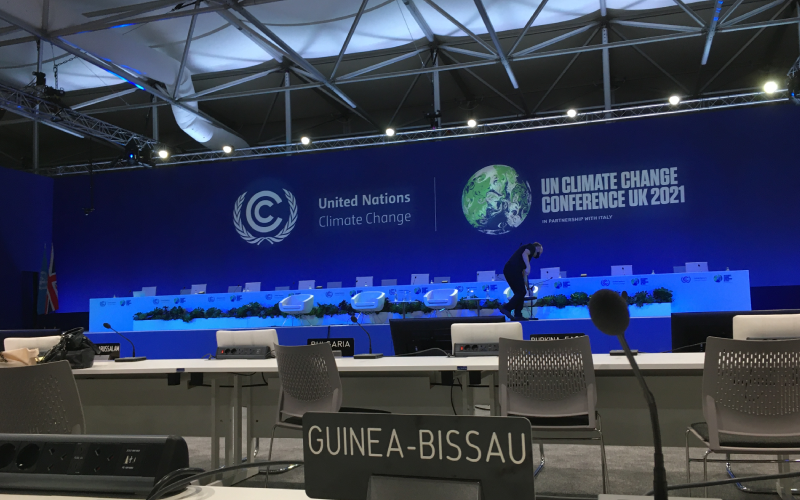You are here
- Home
- Good COP, Bad COP?
Good COP, Bad COP?

COP26 has been bringing together parties from across the world to accelerate action towards the goals of the Paris Agreement and the UN Framework Convention on Climate Change. The Open University has official observer status at COP26 and is learning from the conference to inform the university’s wider sustainability mission and inspire students and staff to take action. Here are some of the conference’s highlights, as told by our Open University observers.
COP26 Diary - 18 November: Leslie Mabon, Lecturer at STEM, Engineering & Innovation.
COP26 negotiations were like a football match that went into extra time. Like my beloved Rovers FC’s performances against Partick, Arbroath and Ayr, the talks scraped over the line. Not everyone was happy, but a global deal to tackle climate change remained intact.
I had access to the negotiations through my role as an Observer for the OU and made time to explore. I made it my mission to spend time each day finding out how climate change is affecting the home countries of the Rovers players past and present.
I learned Dario Zanatta isn’t the only explosive high-energy natural Canadian resource. As a vast and cold country, Canada uses lots of energy for heating and transportation – which is why they’re interested in producing hydrogen as a low-emission source of fuel. The minister I listened to acknowledged it was important to create new jobs for the many people who work in oil fields and tar sands. Meanwhile, Slovenia – the homeland of Matej Poplatnik – focused on reducing waste by using its ample forest resources to produce food, paper, and fuel.
Thanks to Marvin Andrews, Tony Rougier and Harry Panayiotou, Rovers fans have heard about Trinidad & Tobago and St Kitts & Nevis. For the Small Island Developing States, global agreements to reduce emissions are vital, because rising sea levels threaten their very existence. Responding to climate change means building enhanced storm defences and being able to recover from disasters.
The Rovers also had several Francophone players such as Fernandy Mendy (Guinea-Bissau) and Gregory Tade (Cote d’Ivoire). Countries also on the frontline of climate change, facing droughts, severe floods and epidemics linked to warming weather. These Least Developed Countries tabled a request for money from wealthier nations, to help them respond to climate change and compensate for damages. This wasn’t resolved in Glasgow and will roll over to next year’s talks in Egypt.
The scale of the problem and the complexity makes it hard to know where to start. Focusing on the human angle helps us to remember what’s at stake and why events like COP26 are so important.
Related articles
- Introducing a new free course - Climate Psychology: facing the climate crisis 8th February 2024
- Climate Change and machine learning - Climate Perspectives 8th February 2024
- Go Green: What is eco-anxiety? 8th February 2024
- Go Green: Fashion Fixing and Mending 8th February 2024
- OU rises in People and Planet League 13th December 2023